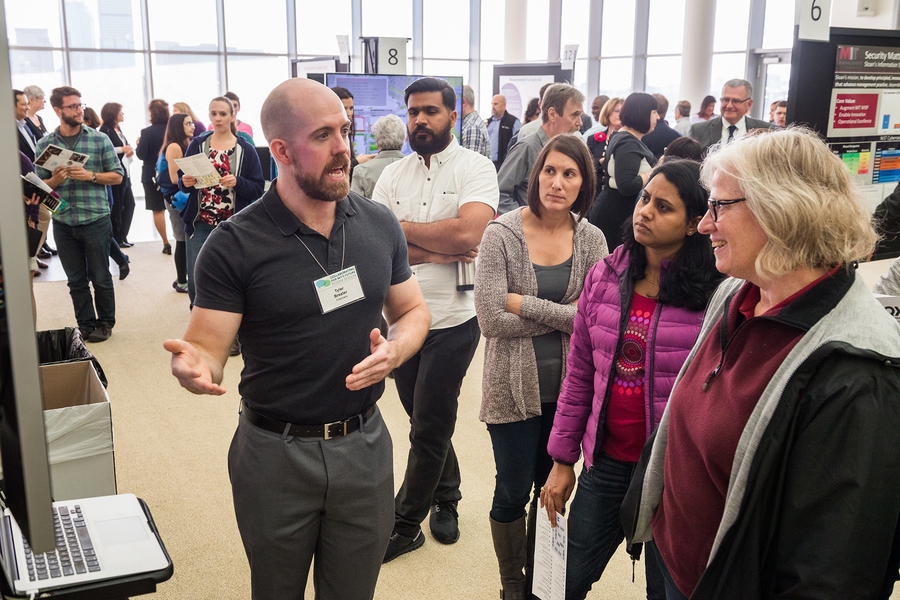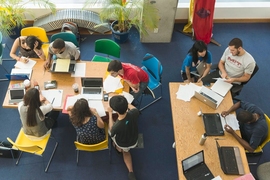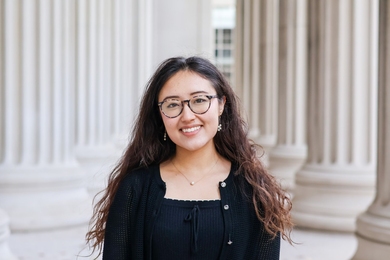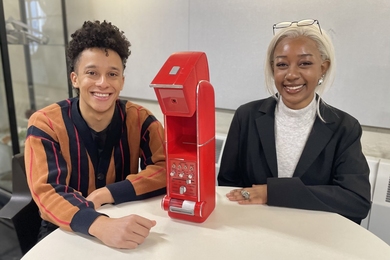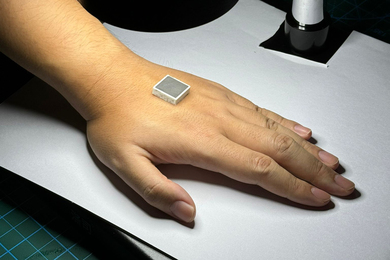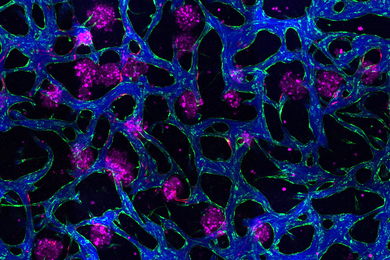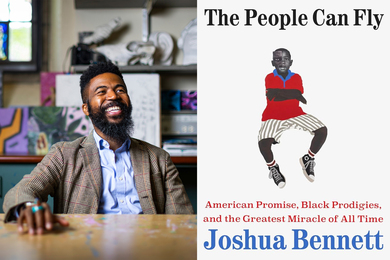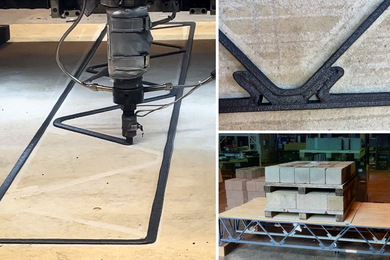It was the best kind of Friday the 13th. The fourth annual “Collaborating for MIT’s Future” poster session connected colleagues from across the Institute as they learned about the good work being done by and for the Institute community, and the world as a whole. The event was sponsored by EVP Connect, under the Office of the Executive Vice President and Treasurer, and the Administrative Advisory Council (ACC II).
Held on the top floor of the Media Lab, the event featured over 50 posters presented by more than 30 MIT departments, offices, and groups. Topics ranged from MIT’s travel registry to the new high-deductible health plan. A few themes emerged — and sometimes intertwined — during the poster session, including energy efficiency and sustainability, innovation, and community.
Energy efficiency and sustainability
MIT is focused on reducing its energy consumption and transitioning to renewable energy. It is also committed to promoting sustainable practices. Presenters at the poster session shared insights about the AccessMIT and Green Labs projects, as well as a sustainability analysis of MIT.
There’s also a lot happening in concert with the Institute’s five-year Plan for Action on Climate Change. Using tools like the Energize MIT dashboard, MIT has become a living lab and students are encouraged to undertake projects that can save energy consumption on campus.
Presenters also emphasized the power of partnerships when it comes to reducing energy use. MIT’s Efficiency Forward program, in collaboration with the utility Eversource (formerly NStar), has been so successful that Eversource has replicated it at other universities and large businesses.
Along with two local partners, MIT made a solar purchase agreement in 2016. Other organizations are adopting this model with help from MIT staff, who are actively sharing what they learned. Agreements like these are helping to change the market for how large-scale renewable energy projects get done.
Another poster emphasized that all community members can make a difference when it comes to sustainability on campus. Those who want to do their part are encouraged to take the web-based course, "Responsible Waste Disposal Practices," through the Learning Center in Atlas (certificates required).
Innovation
A stop at the MIT Campaign for a Better World table provided a big picture view of where MIT is headed. The Campaign aims to raise $5 billion for a number of Institute initiatives, including scholarships, fellowships, unrestricted funding, and capital projects. Through support for everything from basic science to the development of Kendall Square, the goal is to foster entrepreneurship and innovations in education and to tackle the world’s most pressing problems, like climate change. (They’ve already raised $3.8 billion.)
Innovation often springs from research and research requires funding. The Office of Sponsored Programs plans to support MIT researchers through a website that consolidates funding information from the federal government, corporations, and foundations. The website is scheduled to launch in early 2018.
Community
The MindHandHeart initiative taps into MIT’s community spirit and problem-solving skills to launch efforts that enhance mental health and well-being. Its innovation fund is open for applications from faculty, students, and staff through Oct. 31. Now in its third year, the initiative has funded over 40 projects, many of them self-sustaining. These range from the Puppy Lab to Random Acts of Kindness Week to Portraits of Resilience.
The Lemelson-MIT program offers several prizes, including ones that recognize student inventors. One project the poster highlighted was Tactile, a Hackathon-winning portable device — still in prototype — that converts text to braille in real-time. Created by six undergraduate women, this device has the potential to aid millions of vision-impaired people. To help this larger community, the team turned to one of MIT’s own: Paul Parravano, co-director of the Office of Government and Community Relations. He talked with them about the strengths and limitations of his current devices and the importance of making their braille reader affordable. They did this while introducing impressive new technology.
These projects are just a taste of all the good things (including the food) found at this year’s poster session. Anyone interested can sample other presentations online, circle back as more content gets added, and visit AdminConnect for news updates throughout the year.
